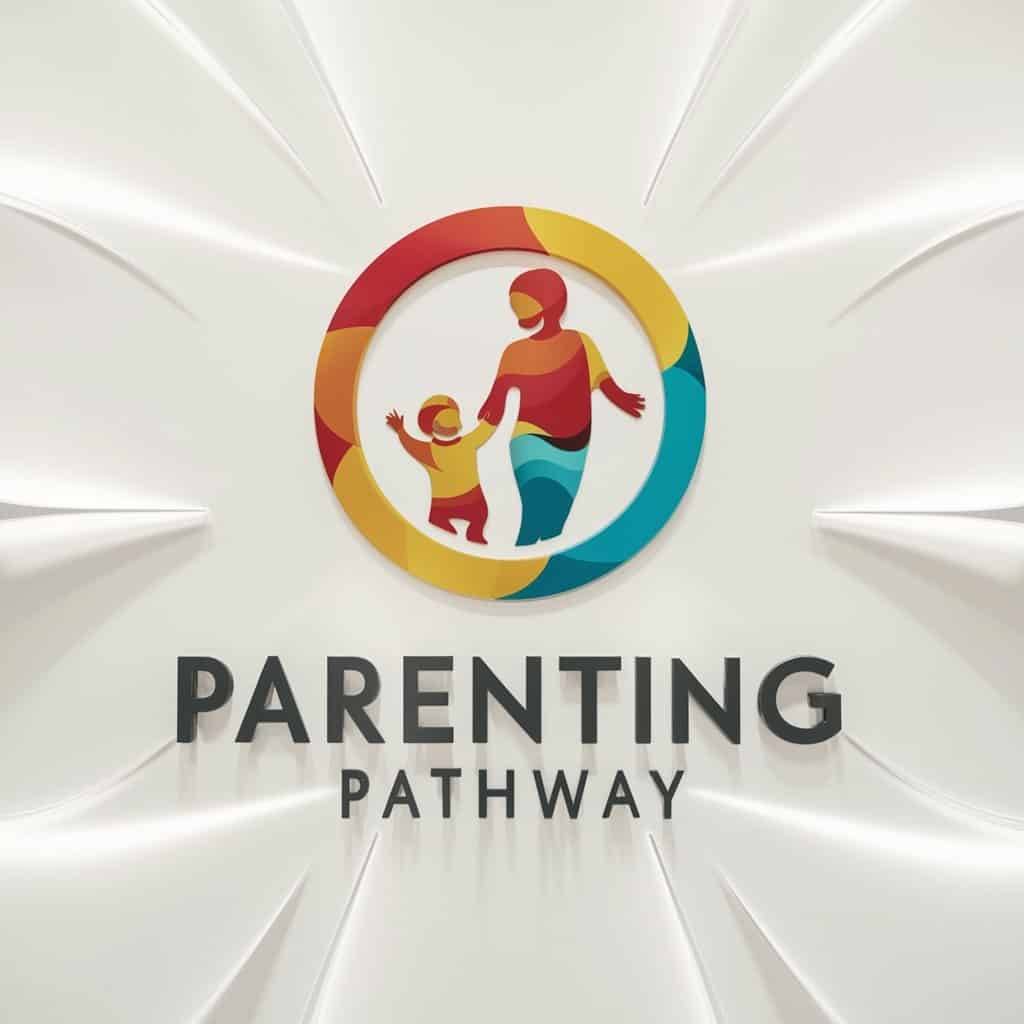Is A School Psychologist The Same As A Child Psychologist? Understanding The Distinction
Back to Blog
School Psychologist vs. Child Psychologist: Core Professional Differences
When exploring mental health professions working with children, many people confuse school psychologists and child psychologists. While both professionals focus on supporting young individuals, their roles, training, and primary responsibilities differ significantly.
School psychologists are specialized professionals primarily working within educational settings, concentrating on students’ academic, social, and emotional development. Their primary objective is to enhance learning environments and support students’ educational success. These professionals collaborate closely with teachers, administrators, and parents to address learning challenges, behavioral issues, and developmental concerns specific to school contexts.
Professional Training and Qualifications
School psychologists typically complete specialized graduate programs in school psychology, which emphasize educational systems, learning theories, and psychological assessment within academic environments. They often hold advanced degrees like Educational Specialist (Ed.S.) or doctoral degrees in school psychology, with comprehensive training in educational interventions and student assessment.
Child psychologists, conversely, receive broader psychological training focused on children’s overall mental health and developmental processes. Their educational background encompasses clinical psychology programs targeting comprehensive child and adolescent psychological understanding. These professionals are equipped to diagnose and treat various mental health conditions affecting children across different settings.
Scope of Professional Practice
The practice domains for these professionals demonstrate distinct differences:
- School psychologists concentrate on:
- Educational performance evaluations
- Learning disability assessments
- Behavioral intervention strategies within schools
- Individual education plan (IEP) development
- Child psychologists focus on:
- Comprehensive mental health diagnoses
- Psychological disorders treatment
- Family dynamics counseling
- Developmental milestone assessments
Work Environment Distinctions
School psychologists predominantly work within educational institutions like elementary, middle, and high schools, special education departments, and school district offices. Their daily responsibilities involve direct student interaction, teacher consultation, and systemic educational support.
Child psychologists operate in more diverse settings, including private practices, hospitals, mental health clinics, research institutions, and community health centers. Their work encompasses broader psychological assessment and therapeutic interventions addressing complex emotional and behavioral challenges.
Therapeutic Approaches
School psychologists typically employ intervention strategies directly connected to academic performance and school-related challenges. Their approaches include developing individualized learning plans, conducting cognitive assessments, and implementing behavioral modification techniques within educational contexts.
Child psychologists utilize more comprehensive therapeutic modalities, including play therapy, cognitive-behavioral interventions, family systems therapy, and specialized counseling techniques addressing various psychological conditions affecting children and adolescents.
Licensure and Professional Requirements
Both professions require rigorous academic preparation and professional credentialing. School psychologists often need specific state certifications in educational psychology, while child psychologists must obtain clinical psychology licenses. Continuing education and periodic professional development are mandatory for maintaining credentials in both fields.
Understanding these nuanced differences helps parents, educators, and students select the most appropriate professional support for specific psychological and educational needs. While their goals overlap in supporting children’s well-being, school psychologists and child psychologists bring unique expertise to addressing developmental challenges.
Educational Settings: Unique Roles in Student Mental Health Support
In the complex landscape of student mental health support, professionals play critical roles in understanding and addressing the psychological well-being of young learners. School psychologists and child psychologists represent two specialized career paths dedicated to supporting students’ emotional and cognitive development, each bringing unique perspectives and intervention strategies.
School psychologists primarily operate within educational environments, focusing on comprehensive student support systems. Their work encompasses a broad range of responsibilities that directly impact academic and social experiences. These professionals collaborate closely with teachers, administrators, and parents to create holistic support strategies for students facing academic, behavioral, or emotional challenges.
Key responsibilities of school psychologists include:
- Conducting psychological assessments within school settings
- Developing individualized education plans (IEPs)
- Implementing behavioral intervention strategies
- Supporting students with learning disabilities
- Providing crisis intervention services
Child psychologists, in contrast, typically work in more diverse settings such as private practices, clinics, hospitals, and mental health centers. Their approach is more clinically oriented, focusing on diagnosing and treating a wide range of psychological conditions that affect children and adolescents. These professionals possess extensive training in comprehensive psychological evaluation and therapeutic interventions.
Professional training distinguishes these roles significantly. School psychologists usually complete specialized educational psychology programs with a specific focus on school-based interventions. They often hold advanced degrees like Educational Specialist (Ed.S.) degrees, which prepare them for working directly within educational systems.
Child psychologists generally complete doctoral programs in clinical or counseling psychology, enabling them to provide more in-depth psychological assessments and long-term therapeutic treatments. Their training equips them to address complex mental health issues beyond immediate academic contexts.
While their core objectives overlap in supporting young individuals’ mental health, their methodological approaches differ considerably. School psychologists prioritize systemic interventions that enhance educational experiences and academic performance. They work within institutional frameworks, developing strategies that support entire student populations.
Child psychologists adopt a more individualized clinical approach, diving deeper into personal psychological dynamics. They explore underlying emotional patterns, developmental challenges, and potential mental health disorders through comprehensive therapeutic techniques.
Collaborative potential between these professionals remains significant. Many complex student cases require integrated insights from both school and child psychologists. For instance, a student experiencing learning difficulties might benefit from a school psychologist’s educational assessment combined with a child psychologist’s deeper emotional evaluation.
Technological advancements and evolving educational paradigms continue reshaping these professional roles. Modern school and child psychologists increasingly utilize digital assessment tools, teletherapy platforms, and data-driven intervention strategies. This technological integration allows for more nuanced, personalized support mechanisms.
Students today face unprecedented psychological challenges, including academic stress, social media pressures, and rapidly changing technological landscapes. Both school and child psychologists play crucial roles in helping young individuals navigate these complex environments, providing essential mental health support.
Understanding the distinctive yet complementary nature of these professional roles helps parents, educators, and students access appropriate psychological support. Whether addressing immediate academic challenges or exploring deeper emotional landscapes, these dedicated professionals remain committed to nurturing students’ holistic development.
Professional Training and Specialized Certification Pathways
When exploring the career paths of school psychologists and child psychologists, understanding the unique professional training and specialized certification pathways becomes crucial for aspiring professionals. These two specialized fields require distinct educational trajectories and professional credentials that shape their respective roles and responsibilities.
Educational Foundation Requirements
School psychologists typically begin their journey with a comprehensive educational background that combines psychology and education. Most professionals in this field pursue a specialized graduate degree, often a specialist-level degree (Ed.S.) or a doctoral degree (Ph.D. or Psy.D.) in school psychology. These programs uniquely blend psychological assessment, educational theory, and systemic interventions within school environments.
Specialized Coursework and Training
The curriculum for school psychology programs emphasizes:
• Educational assessment techniques
• Behavioral intervention strategies
• Consultation with educators and administrators
• Special education law and regulations
• Developmental psychology in academic settings
Child psychologists, by contrast, follow a more clinical psychology-focused pathway. Their educational requirements typically involve:
• Doctoral degree in clinical or counseling psychology
• Specialized training in child and adolescent mental health
• Comprehensive clinical practicum experiences
• In-depth understanding of developmental psychology
• Advanced therapeutic intervention techniques
Certification and Licensing Processes
Each professional path demands rigorous certification processes. School psychologists must typically:
• Complete a state-approved graduate program
• Accumulate supervised clinical hours
• Pass the Nationally Certified School Psychologist (NCSP) examination
• Obtain state-specific licensure credentials
• Maintain ongoing professional development requirements
Child psychologists navigate a slightly different certification landscape:
• Complete doctoral-level training
• Acquire postdoctoral clinical supervised experience
• Pass the Examination for Professional Practice in Psychology (EPPP)
• Obtain state licensure as a clinical psychologist
• Pursue additional board certification in child and adolescent psychology
Professional Credentialing Nuances
The National Association of School Psychologists (NASP) provides comprehensive guidelines for school psychology professionals, while the American Board of Professional Psychology (ABPP) offers specialized certification for child psychologists. These organizations establish rigorous standards that ensure professionals maintain exceptional competency and ethical practice.
Continuing Professional Development
Ongoing professional growth remains critical in both career paths. School psychologists must consistently:
• Attend specialized workshops
• Participate in systemic intervention training
• Stay updated on educational policy changes
• Engage in research and professional networking
Child psychologists similarly invest in continuous learning through:
• Advanced clinical training programs
• Trauma-informed care workshops
• Emerging therapeutic technique seminars
• Research conferences and professional symposiums
Specialized Practice Areas
While both professions share foundational psychological principles, their practical applications differ significantly. School psychologists primarily focus on academic environments, supporting student learning, behavioral interventions, and educational assessment. Child psychologists concentrate more broadly on mental health, addressing psychological disorders, developmental challenges, and therapeutic interventions across various settings.
Professional Collaboration and Interdisciplinary Approach
Modern psychological practice increasingly emphasizes collaborative approaches. School psychologists often work directly with educators, parents, and administrators to create comprehensive support systems. Child psychologists might collaborate with pediatricians, social workers, and educational professionals to provide holistic care.
The intricate pathways to becoming a school or child psychologist demonstrate the complexity and specialization required in these profound helping professions. Each route demands dedication, extensive training, and a genuine commitment to supporting children’s psychological and educational well-being.
Aspiring professionals must carefully consider their personal interests, professional goals, and the specific impact they wish to make in children’s lives when choosing between these complementary yet distinct career trajectories.
Assessment and Intervention Approaches in Different Contexts
Professionals working in psychology and education employ diverse strategies to address complex challenges across various settings. These approaches are tailored to meet unique individual needs while considering specific contextual factors that influence assessment and intervention.
Educational Settings
In school environments, psychological professionals utilize comprehensive evaluation techniques to understand student learning dynamics. They assess cognitive functioning, emotional regulation, and academic performance through standardized tests, behavioral observations, and interactive assessments. Intervention strategies often involve collaborative approaches with teachers, parents, and support staff to develop personalized learning plans.
Key Assessment Components
- Cognitive ability evaluations
- Academic skill assessments
- Social-emotional functioning screenings
- Behavioral pattern analyses
Clinical Mental Health Contexts
Mental health practitioners implement more intensive intervention protocols designed to address psychological challenges. These approaches integrate comprehensive diagnostic procedures with targeted therapeutic interventions. Professionals utilize evidence-based methodologies including cognitive-behavioral techniques, trauma-informed care, and systemic family interventions.
Intervention Strategies
- Individual counseling sessions
- Group therapy frameworks
- Family systems interventions
- Neuropsychological rehabilitation programs
Neurological and Developmental Considerations
Assessment approaches for individuals with neurodevelopmental conditions require specialized techniques. Professionals employ sophisticated diagnostic tools to understand complex neurological functioning, sensory processing, and cognitive capabilities. Intervention strategies are meticulously designed to support adaptive skill development and enhance overall functional independence.
Specialized Assessment Techniques
- Comprehensive neuropsychological evaluations
- Functional behavioral assessments
- Sensory integration diagnostics
- Communication skill profiling
Workplace and Organizational Domains
Psychological professionals working in organizational settings focus on assessment and intervention strategies that promote workplace wellness, employee performance, and organizational effectiveness. They utilize specialized tools to evaluate team dynamics, individual psychological resilience, and potential areas of interpersonal improvement.
Organizational Assessment Approaches
- Psychological risk assessments
- Leadership potential evaluations
- Team cohesion diagnostics
- Stress management interventions
Technology-Enhanced Assessment Methods
Modern psychological assessment increasingly incorporates advanced technological tools. Digital platforms enable more comprehensive, accurate, and accessible evaluation techniques. Professionals leverage artificial intelligence, machine learning algorithms, and sophisticated diagnostic software to enhance assessment precision and intervention effectiveness.
Technological Integration Components
- Digital psychological screening tools
- Online cognitive assessment platforms
- Teletherapy intervention systems
- Neuroimaging diagnostic technologies
Each assessment and intervention approach represents a nuanced methodology designed to address complex psychological and behavioral challenges. Professionals must continuously adapt their strategies, integrating emerging research, technological advancements, and evidence-based practices to provide comprehensive support across diverse contexts.
Career Implications and Professional Practice Boundaries
When comparing school psychologists and child psychologists, understanding their professional boundaries becomes crucial for aspiring mental health professionals and parents seeking specialized support.
School psychologists and child psychologists operate within distinct professional domains, each with unique responsibilities and practice settings. While both specialize in working with children, their primary focuses and methodological approaches differ significantly.
Professional Scope and Work Environment
School psychologists primarily function within educational institutions, concentrating on academic, behavioral, and developmental challenges students encounter. Their work involves comprehensive assessments, individualized education plan (IEP) development, and collaboration with teachers, administrators, and parents to support student success.
Child psychologists, conversely, operate in broader clinical settings such as private practices, hospitals, mental health clinics, and research institutions. Their scope extends beyond academic performance, addressing comprehensive psychological, emotional, and developmental concerns across various childhood stages.
Assessment and Intervention Strategies
In educational environments, school psychologists specialize in:
• Identifying learning disabilities
• Conducting psychological evaluations
• Developing academic intervention strategies
• Supporting students with special needs
• Managing behavioral challenges within school contexts
Child psychologists focus on:
• Comprehensive psychological assessments
• Diagnosing mental health disorders
• Providing individual and family therapy
• Addressing developmental and emotional challenges
• Treating complex psychological conditions
Educational Requirements and Credentials
School psychologists typically require:
• Master’s or specialist degree in school psychology
• State certification/licensure
• Specialized training in educational systems
• Understanding of academic developmental processes
Child psychologists generally need:
• Doctoral degree (Ph.D. or Psy.D.)
• Clinical psychology specialization
• Extensive training in child developmental psychology
• Licensed clinical psychologist credentials
Intervention and Treatment Approaches
School psychologists concentrate on academic and behavioral interventions within educational frameworks. They collaborate closely with educators to create supportive learning environments, implement classroom strategies, and address student-specific challenges.
Child psychologists provide more comprehensive psychological treatment, utilizing diverse therapeutic techniques like cognitive-behavioral therapy, play therapy, and family counseling to address complex emotional and developmental issues.
Key Differentiating Factors
While overlapping in some areas, critical distinctions include:
• Professional setting
• Primary intervention focus
• Depth of psychological assessment
• Treatment methodological approaches
• Professional credentialing requirements
Collaborative Professional Relationships
Despite different professional domains, school and child psychologists often collaborate to provide comprehensive support. Their combined expertise ensures holistic child development and addresses multifaceted psychological needs.
Specialized Expertise Considerations
Parents and educational professionals should understand these distinctions when seeking appropriate psychological support. Recognizing each professional’s unique capabilities helps in making informed decisions about a child’s mental health and educational requirements.
The choice between consulting a school psychologist or child psychologist depends on specific circumstances, presenting challenges, and desired outcomes. Both professionals play critical roles in supporting children’s psychological well-being and developmental trajectories.
Professional Impact and Significance
Understanding the nuanced differences between school and child psychologists highlights the complexity of mental health support for children. Each professional brings specialized skills, contributing uniquely to children’s psychological and academic development.
Ultimately, both school and child psychologists share a fundamental commitment: supporting children’s emotional, academic, and developmental growth through expert, compassionate interventions tailored to individual needs.
Key Takeaway:
Key Takeaway: Navigating the Distinct Professional Landscapes of School and Child Psychologists
Understanding the nuanced differences between school psychologists and child psychologists is crucial for students, parents, and professionals seeking specialized mental health support. While both professions share a commitment to supporting children’s psychological well-being, their professional roles, training, and practice settings differ significantly.
School psychologists are uniquely positioned within educational environments, focusing primarily on students’ academic, social, and emotional functioning within school systems. Their expertise centers on addressing learning challenges, developmental issues, and institutional support mechanisms. These professionals work directly with schools, conducting comprehensive assessments, developing individualized education plans, and collaborating with teachers and administrators to create supportive learning environments.
In contrast, child psychologists have a broader clinical scope, working across multiple settings including private practices, hospitals, mental health clinics, and community health centers. Their training encompasses a more extensive range of psychological interventions, addressing complex mental health conditions, developmental disorders, and comprehensive psychological assessments that extend beyond educational contexts.
The professional training pathways for these roles also diverge substantially. School psychologists typically complete specialized graduate programs focusing on educational psychology, school systems, and academic interventions. They often require state-specific certifications and licensing aligned with educational regulations. Child psychologists, meanwhile, pursue more clinically intensive doctoral programs, gaining broader psychological assessment and treatment skills applicable across various developmental stages.
Assessment approaches further distinguish these professionals. School psychologists specialize in educational and learning-related evaluations, using tools specifically designed to understand academic performance, learning disabilities, and classroom functioning. Child psychologists employ more comprehensive psychological assessment techniques, exploring deeper emotional, behavioral, and developmental challenges that might transcend immediate educational environments.
Career implications reflect these distinct professional boundaries. School psychologists are primarily embedded within educational institutions, working collaboratively with educators and families to support student success. Child psychologists enjoy more diverse practice opportunities, including clinical counseling, diagnostic assessment, and therapeutic interventions across multiple developmental contexts.
Ultimately, both professions play critical roles in supporting children’s mental health and developmental trajectories. The key is recognizing their complementary yet distinct approaches to understanding and nurturing children’s psychological well-being.
Professionals and families seeking support should carefully consider the specific needs of the child and select the most appropriate psychological professional based on the unique challenges and contexts requiring intervention.
Conclusion
Understanding the distinction between school psychologists and child psychologists reveals the nuanced yet critical differences in mental health support for young individuals. While both professionals play pivotal roles in promoting psychological well-being, their specific domains, training, and professional focus create unique contributions to student development.
School psychologists specialize in educational settings, working directly within academic environments to address learning challenges, behavioral issues, and systemic educational support. Their expertise centers on comprehensive school-based interventions, collaborating with educators, administrators, and families to create holistic support strategies.
Child psychologists, conversely, operate in broader clinical contexts, offering more extensive psychological assessments and therapeutic interventions across various developmental stages. Their practice extends beyond educational environments, encompassing private practices, mental health clinics, and specialized treatment centers.
The complementary nature of these professions highlights the importance of understanding their distinct yet interconnected roles. Students benefit immensely from professionals who recognize and respect these specialized boundaries, ensuring targeted, effective psychological support.
For aspiring mental health professionals, choosing between these career paths requires careful consideration of personal interests, professional goals, and desired impact. Each role demands rigorous training, specialized certification, and a profound commitment to supporting young individuals’ psychological growth and well-being.
Ultimately, whether working as a school psychologist or a child psychologist, the shared mission remains consistent: fostering mental health, supporting developmental potential, and empowering young people to thrive academically, emotionally, and socially.




Leave a Reply